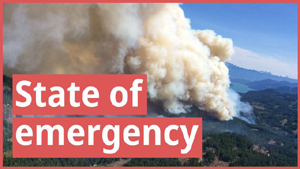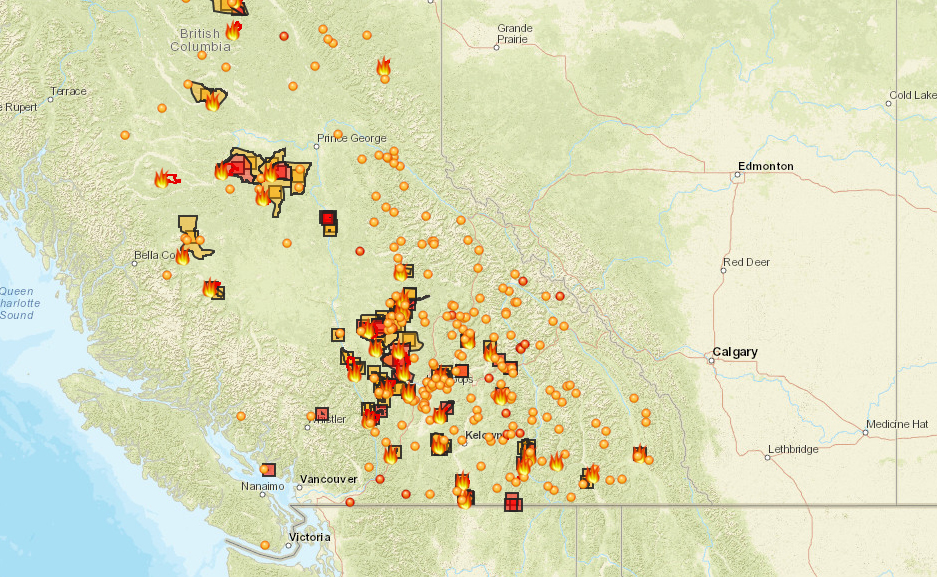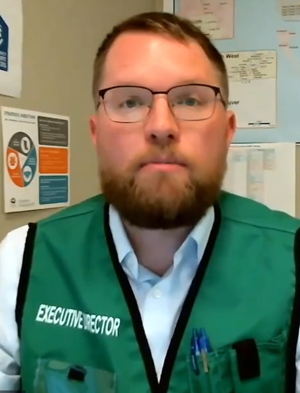Tuesday July 20, 2021 | VICTORIA, BC [Updated July 21, 2021 at 11:35 am]
INSIGHTS by Mary P Brooke, Editor | Island Social Trends
A State of Emergency around wildfires starts tonight July 20, 2021 at midnight in British Columbia. Technically, first thing Wednesday July 21.
Two key reasons for the province-wide response to the ongoing wildfire situation were given today by BC Public Safety Minister & Solicitor General Mike Farnworth as being big changes in weather conditions (wind events, dry lightning, subtropical event moving northward) and needing the ability to deal with massive evacuation scenarios including acquiring accommodation spaces as needed.
It seemed slow in coming:
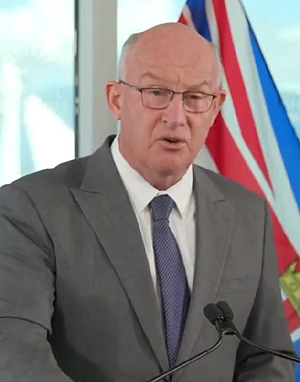
This is after a week of public and political-opposition pressure to call the State of Emergency. It was only a few weeks ago that BC cancelled its COVID-related State of Emergency, after 16 long months of that health emergency pandemic (COVID still continues, but is considered well enough under control to not be needing a State of Emergency attached to it).
Premier John Horgan said last week that if the firefighting experts need the additional assistance that comes with a state of emergency, then it would be considered. But he also indicated that additional wildfire equipment and personnel were not just readily available just because a state of emergency might be called. With wildfires quite active in many other jurisdictions in Canada and beyond, available resources are apparently not easy to come by.
It’s possible that one of the reasons for not calling a state of emergency until now is that the last one just finished. It takes a lot of government administrative and management resources to coordinate a state of emergency. As well, it sure doesn’t help get the economy back up and running when people hear, from afar, what sounds like the entire province is burning (which it’s not). Yes, there are presently around 300 fires, but natural wildfires happen every summer, and by all accounts the combined services of BC Wildfire, Emergency Management BC, RCMP, local firefighters, and other resources (like a centralized wildfire-resource management bureau in Winnipeg) have had things under control.
Case in point, on national news they make it sound like the entire province is burning. Even when showing a map (with no fires on Vancouver Island or in the Vancouver metro area) the news spin is that ‘all of BC is one fire’ (as one news anchor put it in the last day or so).
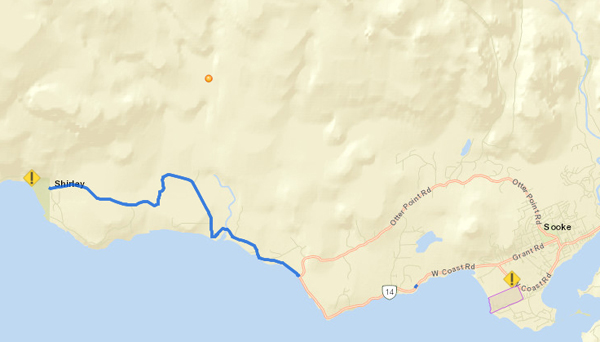
Note: as of July 16 there was one small fire on Vancouver Island near Muir Creek, east of Shirley and west of Otter Point, 0.3 hectare in size, considered under control.
Applies to the whole province:
The state of emergency is initially in effect for 14 days once issued and may be extended or rescinded as necessary.
The state of emergency applies to the whole province (even in areas where there are presently no forest fires or fires of note, such as on Vancouver Island — see Current Wildfire Activity) and ensures federal, provincial and local resources can be delivered in a coordinated response to protect the public, which the provincial government states as its top priority.
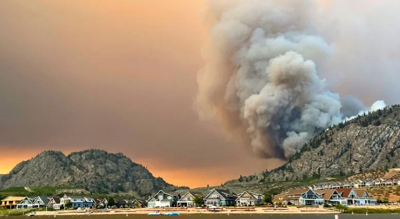
The state of emergency gives agencies, such as the Ministry of Forests, Lands, Natural Resource Operations and Rural Development, Emergency Management BC, the fire commissioner and the RCMP, the authority to take every action necessary to fight the wildfires and protect people and communities.
Firefighters will be arriving from other jurisdictions, including about 100 from Mexico who will be arriving this weekend; their support is available to BC each summer fire season.
Active wildfires:
There are currently 37 wildfires of note — all of them in the BC interior and north, out of a total of 248 active wildfires larger than 0.009 hectares (as of 5:15 pm on July 20, 2021), according to the BC Wildfire site.
In a mid-afternoon government release today July 20 (around 2:20 pm), the government said there were 299 wildfires burning in BC; the number change rapidly as conditions change. | Click here for Current BC Wildfire Stats & Map
There are presently 40 evacuation orders affecting approximately 5,724 people (2,862 properties), in addition to 69 evacuation alerts impacting approximately 32,076 people (16,038 properties). The extended weather forecast calls for continued hot and dry conditions, with heightened wind activity in the Interior and southeastern BC.
More than 3,180 firefighters and resource staff are currently actively engaged in fighting fires in all fire regions in the province. This includes 1,080 contractors and 135 out-of-province resources. “Every opportunity is being pursued,” said Farnworth today, as to utilizing all available personnel and equipment.
The federal government has responded to and accepted British Columbia’s request for firefighting assistance. In the coming days, federal personnel and resources will be arriving in BC to assist with wildfire efforts.
Wildfire smoke:
Wildfire smoke has not yet reached larger urban areas in the BC lower mainland to any noticeable level. On Vancouver Island we are so far in the clear as to wildfire smoke.
But today it was stated that fires in Washington State (to the south of BC) could result in smoke drifting our way. Smoky sky warnings have been issued in the Greater Victoria area in previous summers.
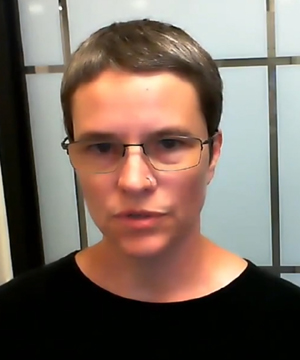
Today, BC Centre for Disease Control Scientific Director in Environmental Health Services, Sarah Henderson, seemed to downplay the impact of wildfire smoke as a health concern. But wildfire smoke contains all the toxins and debris of everything that is burned, as well as the chemicals used to try and control fires.
Last week Provincial Health Officer Dr Bonnie Henry said that most smoke impact is temporary, and that overheating is more serious to immediate health than breathing smoky air. Overheating led to three-times as many deaths in BC as usual in the last week of June, during an extraordinary heat-dome event.
Media sessions:
Today’s media briefing about wildfires was led by Minister Farnworth, with reps from Emergency Management BC (Peter Brach), BC Wildfire (Cliff Chapman), BC RCMP (Eric Stubbs), and the BC Centre for Disease Control (Sarah Henderson).
The next BC Government wildfire media session has been scheduled for Thursday July 22. Time tba, but probably 2 pm Pacific Time (as it has been the last two times).
Weather pushed this over the edge:
“In a briefing last night, I received word that we’ll be facing a few days of very difficult weather in the Interior,” said Farnworth. “This declaration will address the potential of a mass evacuation scenario and provide our government with the means to secure the accommodation spaces necessary to house our citizens, if necessary.”
Generally in Canada we are careful to uphold personal rights and freedoms. A state of emergency like this gives government some sweeping powers that could see people forced to leave their homes and their property behind. That’s probably another reason was the BC Government was not hasty about their decision for a state of emergency.
In BC we were sort of ‘spoiled’ by the state of emergency during the COVID pandemic. It seemed to make people feel safe. Most individuals were not directly impacted, but the impositions could have been much worse. As it was, many workers were shocked to find out that their roles were considered essential under a state of emergency, including nurses of course but also teachers and those in the food supply chain. No one really articulated that, but it hit hard for some.
===== LINKS:
Emergency Info BC (BC Government)
BC Wildfire Stats & Map: keep up to date on the provincial wildfire situation


